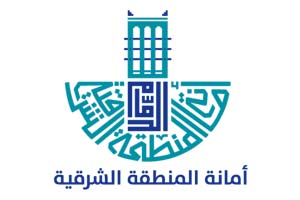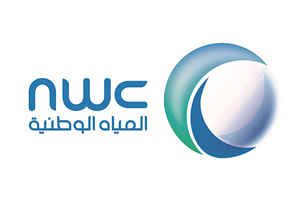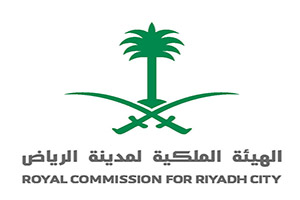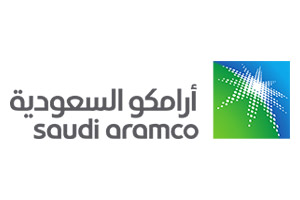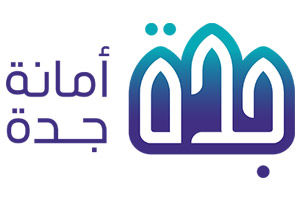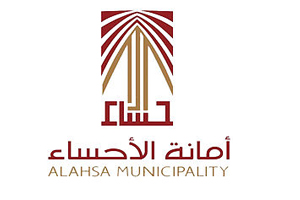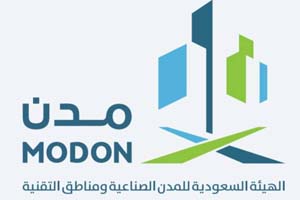Our strong written Accident Prevention Program and Management Leadership do make a difference!
At EICC, we believe that the prevention of accidents is both our moral obligation and good business. Our safety efforts are based on our belief that every working person is entitled to a safe and healthy place to work at. The responsibility for the health and safety of our employees goes far beyond simple compliance with the government regulatory requirements. We recognize that the protection of our employees, property, the public and the environment is essential to the efficient and successful completion of every construction project we undertake. Safety is more than a priority at EICC. Here safety is a value.
EICC has established Accident Prevention Program that includes formal safety training, inspections, audits and a formalized system of reporting. We recognize that accident prevention is a line management responsibility. That responsibility is shared at every level of our organization, from the President all the way through our crafts work force. We train our managers, supervisors and employees to identify and rectify unsafe conditions and more importantly unsafe work practices.
Our project management teams administer our Accident Prevention Program at the project level, with the support of a full-time Safety Manager reporting directly to the project Manager. At the corporate level, our program has oversight and management from a full-time Safety Director and an Operations Safety Manager.
We know that our accident prevention efforts must have the same value as quality, morale, cost, schedule, and production. Safety is not something we do in addition to the work. It is how we do the work!
At EICC, we recognize that accidents should be unusual events and that most of them are preventable. Our goal continues to be ZERO ACCIDENT.
EICC looks after the health and safety of all its employees, sub-contractors and those who enter the construction site. The safety officer ensures that all personnel entering the construction site comply with the Clients Safety Rules & Regulations, provide training and instruction to make accident free work site.
SAFETY
At EICC, policy is an important element and requires the attention and involvement of all project personnel. Every individual in the company must be aware of the company’s safety policy and attitude towards the control of accidents, damage to equipment and fire.
Each employee satisfactorily discharges the responsibilities allocated to him, and his safety records are taken into account when promotions or other rewards are being considered.
SAFETY: WHO IS RESPONSIBLE?
Within the site premise, the Project Manager has the overall responsibility for implementation and supervision of the project safety program and for providing the interface between senior management, other department managers and safety officers. This does not relieve all other managers and personnel from their responsibility to actively promote and supervise safety activities within their respective organization and does not preclude day-to-day working relationship between safety officer and all others organizations.
The safety officer’s responsibility is the implementation of complete industrial and construction safety requirements and Client Safety Program and Procedures, training for site personnel, conducting weekly safety meeting, ensuring that all personnel adhere to safety requirements, periodical checking of personnel and safety equipment, coordination and site visits.
At EICC, we ensure corrective actions are taken if any lapses are found, perform safety audit and submit records to administration to coordinate with representatives the implementation of all safety rules and procedures.
All necessary records related to safety are maintained. A safety o cer reports directly to the project manager.
SAFETY EDUCATION AND TRAINING
A Safety Officer makes sure that each employee is instructed regarding work hazards and the methods by which these hazards are controlled. Instruction regarding the safety program is provided through weekly toolbox safety meeting. a minimum of 15 minutes is allotted for the safety orientation of all new hired employees. the personnel responsible for the orientation is a qualified person who is knowledgeable in the field of safety.
PERSONAL PROTECTIVE EQUIPMENT (PPE)
Every employee wears a hard hat at all times on the job site as mandatory. Employees are provided with PPE, such as eye protection, hearing protection, hand & foot protection, safety belt & lifeline, long trousers & long sleeves shirt, etc. Tennis shoes and slippers are not be allowed. A safety officer ensures that all employees wear safety belt when working six feet or above the ground. The lanyard is securely attached to the employee 100 percent of time and is allowed maximum fall distance of six feet. Safety belt is worn and attached to the tie off rail when working out of extensible and articulating boom platforms and to vertical drop lines when working from..
ACCIDENT REPORT AND RECORDS
A report of all accidents is required through incidents reporting system, reports required is submitted promptly. Written report are submitted not later than 24 hours following occurrence. An immediate oral report are made to the authorized representative in case of all fatal injuries, injuries requiring medical attention, incidents involving damage of contractor materials & fires. Initial oral reports of such incidents are followed by written report detailing the circumstances, corrective action taken and recommended action to prevent recurrence. The written report is made on a standard form acceptable to the client. In case of serious accident, a full detailed account of the circumstances with witness statements and descriptive photographs are submitted.
In addition to the reports above, records are kept of all injuries and damage incidents on a form approved by the authorized representative, and a copy of the record is submitted monthly to the authorized representative. Injury analysis are completed following each injury by the injured employee’s supervisor. A monthly safety report with worked man–hour and injury reports in the prescribed format is submitted.
SAFETY ORIENTATION OF CRAFT FOREMAN
A safety orientation session is conducted by a safety officer with each foreman deployed to site to ensure that the foremen are familiarized with their safety responsibilities. The sessions highlight project safety program and cover the following aspects:
- Safe Work Area
- Safe Work Practices
SAFE WORK AREA
Each foreman is familiar with the conditions in each area of the project to which members of his crew are assigned. Unsafe conditions that exist in the work area are corrected prior to commencement of work, wherever possible. Otherwise, the problem is reported to the attention of the general supervisor or the responsible superintendent who initiates corrective action. The supervisor seeks the assistance of the safety officer on complicated problems.
SAFE WORK AREA
A supervisor Informs his crew of the safe practice, work methods, and personal protective equipment required when delegating assignments. He is responsible for ensuring that his men have the proper protective equipment and suitable tools for the job and follow the instructions. the safety officer ensures that good housekeeping is maintained at all times on the job site. He ensures that workers comply with safety requirements when using ladders. All sca olding are erected and maintained in accordance with established standards. When doing either welding and burning operations, employees follow precautionary measures. All regulations normally enforced by Saudi Arabian Traffic Police are be complied with when on the job site.
SUPERINTENDENT AND SUPERVISOR’S SAFETY MEETINGS
The subject material is typed and reproduced for distribution at the meeting, which is conducted by the safety o cer. These safety meetings conform to the following guidelines, covered at each meeting:
- Reviewing of note worthy cases since the previous meeting, identifying principal accident causes.
- Accident prevention methods are initiated by the individuals will be elaborated
- Reviewing of the most frequently noted serious, non-serious but repeated safety violations. Corrective
- actions required by the responsible individuals are established.
The safety officer encourages group discussions on methods of corrections, improvements, etc… - Supervisors selectively assign to groups to ensure that adequate supervision is maintained in the field. Each group are scheduled for a meeting every other week
- The meeting time is around 30 minutes expected in unusual circumstances. Attendance at these meeting
is mandatory. - Each supervisor who conducts tool safety meeting lists all employees who attend, and all safety
suggestions and/or questions developed during the meeting and the completed tool box safety meeting
report are returned to the safety o cer for review and action - The safety officer prepares a written summary of each meeting, highlighting the major items of discussion,
and unsolved issues. Copies of toolbox meetings and attendance list are forwarded to authorized representative
FIRST AID
The supervisor ensures that all employees under his supervision are aware of their obligation to immediately report all injuries for first aid.
First aid personnel are introduced to the employees well in advance. All necessary first aid facilities for all its employees including subcontractors are provided. If the injury is serious, it is referred to a nearby hospital. Ambulance is arranged if necessary.
INCENTIVE PROGRAM
In order to improve safety performance, employees who contribute signi cantly in the overall implementation of the company’s safety programs are rewarded.
SECURITY
- At EICC, daily activities are logged in book kept at security o ce. Materials, tools, equipment movements, work rule violation, incidents or special reports are recorded in the logbook.
- All known company vehicle are checked and inspected while leaving or entering the job site. When reporting to or departing from duty, the security guards assigned on that shift signs in and out in the logbook.
- A security guard is stationed at the entrance of the field office area as indicated with signed guard post. Security guards assume roving inspection duty during night shift to cover the all project area. A key of the office is given to the guard so he can use the telephone at nighttime.
- Removal/withdrawal of equipment, tools and materials from job site are allowed only with written approval by the project manager or construction manager.
- Warehouse on the site is managed by a storekeeper who is responsible for the issuance of materials, equipment and tools. Each item has stock card to record all withdrawals and receipts of all materials and equipment. All materials are stored in this warehouse. The storekeeper has a key of the warehouse and duplicate key is kept at the security office.
- All important documents, plans and files are stocked in a cabinet in one locked room. Only authorized personnel with key are allowed to enter. Unauthorized entrant are apprehended and turned over to the security for investigation.
FIRE PREVENTION
Each supervisor is obligated to maintain a constant awareness of the fire potential in his area of responsibility. If a potential fire hazard is noted, the supervisor initiates corrective action or notify his superintendent about the problem. Employees question and inform supervisor of potential fire areas.
EICC Co. provides fire extinguishers to be used when required at offices, tool rooms, storage area and at places wherever required on job site, and also provides fire watch personnel for all cutting, burning, welding and all other open flame operations performed in restrictive areas and areas requiring hot permits. Proper
Firefighting equipment’s and training are given; record of such training is maintained and forwarded to the Contract Administrator

